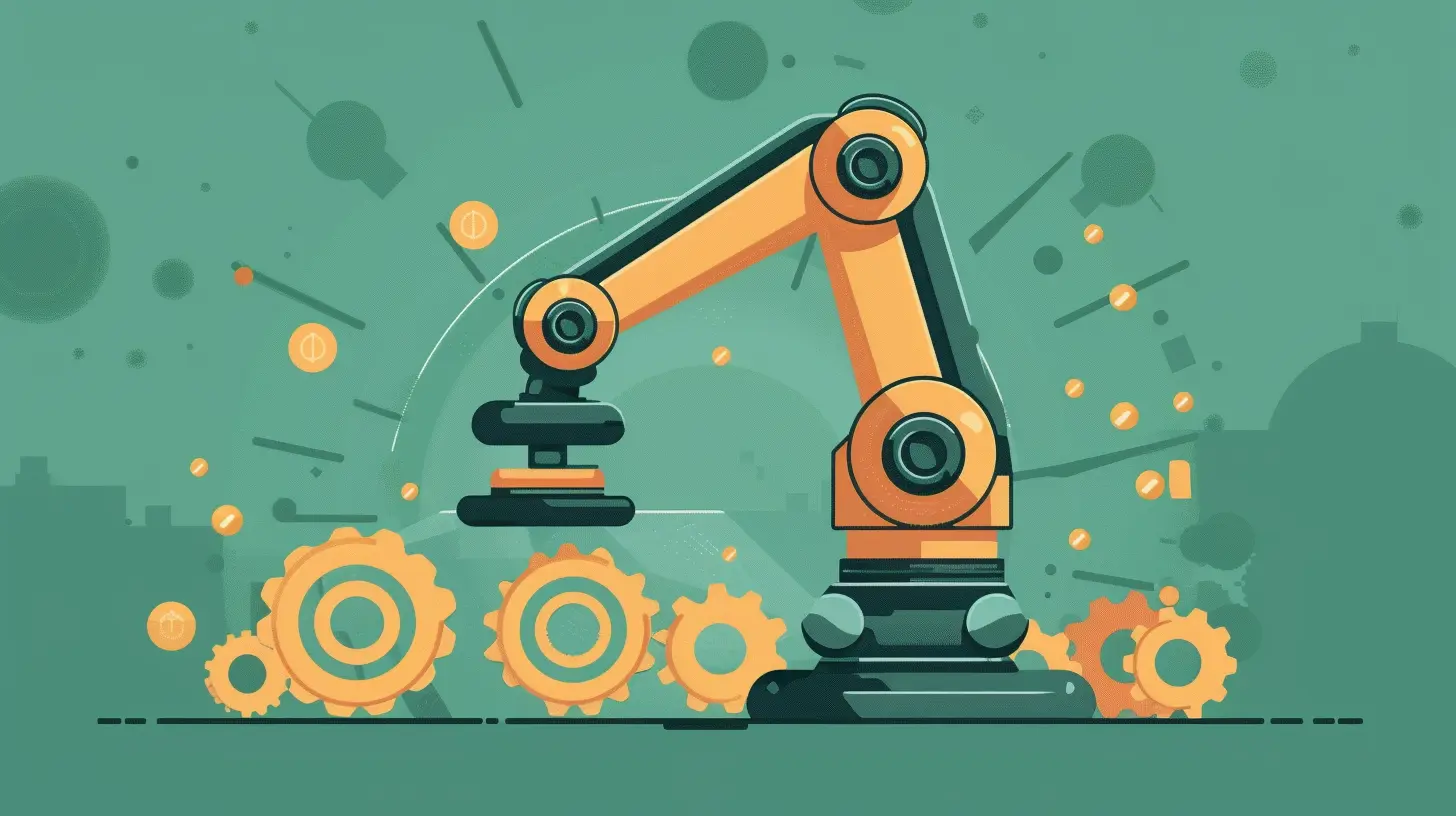The Hidden Costs of Not Automating Your Business
18 April 2025
Let’s be honest—when you hear the word "automation," what comes to mind? Robots taking over the world? Complex software you’ll never figure out? Maybe you shrug it off, thinking, “My business doesn’t need that fancy tech stuff.” But here’s the kicker: not automating your business could be quietly draining your time, money, and sanity. Sounds dramatic, right? But trust me, the hidden costs of not automating are very real—and they’re sneaky.
In this article, we’ll dig into why skipping automation isn’t just a missed opportunity—it’s actually costing you big time. From wasted resources to employee burnout, the hits just keep coming. So buckle up, because we’re about to uncover what’s really happening behind the scenes of a non-automated business.
What is Business Automation Anyway?
Before we dive into the costs, let’s set the stage. Business automation is all about using technology to handle repetitive, mundane tasks. Think of things like sending invoices, tracking inventory, scheduling social media posts, or even following up with customers. The idea is to set it and forget it, so you and your team can focus on the stuff that actually moves the needle.It’s like having a tireless assistant who never takes coffee breaks. Sounds like a dream, right? Yet, plenty of businesses are still doing things the old-fashioned way—manually. And that’s where the trouble begins.
The Real Costs Lurking in the Shadows
Most of the costs of sticking to manual processes don’t show up on your balance sheet right away. They’re hidden—camouflaged in inefficiencies, missed opportunities, and even employee turnover. Let’s break it down.1. Wasted Time (And We All Know Time is Money)
How many hours does your team spend on repetitive tasks? Be honest. It might not seem like a big deal at first—five minutes here, ten minutes there. But when you add it up over days, weeks, and months, it’s staggering.For example, imagine your sales team spends two hours a day entering data into a CRM system. Over a year, that’s 520 hours gone. What could they have done with those hours instead? Closed more deals? Followed up with leads? Probably. Every minute spent on manual work is a minute not spent on growth-driving activities.
Bottom Line: Manual processes bog down your team like quicksand. Automation helps you claw back that precious time.
2. Human Error: The Silent Profit Killer
Spoiler alert: humans make mistakes. It’s not because we’re lazy or careless—it’s just human nature. But errors in business can be costly. A misplaced decimal, a missed deadline, or a forgotten follow-up email can mean lost revenue or unhappy customers.Let’s say your accounting team forgets to send an invoice. Suddenly, a payment is late, cash flow takes a hit, and you’re scrambling to fix the mess. Automating tasks like invoicing ensures nothing slips through the cracks. Machines, unlike humans, don’t “forget.”
Bottom Line: Automation minimizes errors, saving you from costly blunders that could have been avoided.
3. Employee Burnout: When Morale Takes a Nosedive
Nobody likes doing the same boring task over and over again. It’s exhausting, demotivating, and frankly, soul-crushing. When employees spend their days on monotonous work instead of creative or strategic tasks, they’re more likely to burn out. And let’s not forget—burnout leads to higher turnover rates.Think about it: If your team feels like robots, they’ll eventually start looking for jobs where they can actually make an impact. Automation takes care of the repetitive stuff, leaving your employees free to focus on work that excites and motivates them.
Bottom Line: Happy employees are productive employees. Automation helps you retain top talent by making their lives easier.
4. Missed Opportunities: Falling Behind the Competition
Here’s the harsh reality: your competitors are probably already automating. That means they’re running faster, leaner, and smarter while you’re stuck in the slow lane. And guess what? Customers notice. They expect quick responses, seamless experiences, and error-free service.If you’re still fumbling with manual processes, you’re not just falling behind—you’re handing your competitors a golden ticket to swoop in and steal your customers. Imagine losing a deal because your competitor sent a proposal faster. Painful, right?
Bottom Line: Automation isn’t just nice to have—it’s a must for staying competitive in today’s fast-paced world.
5. Increased Operational Costs (Death by a Thousand Paper Cuts)
Ever heard the phrase “penny wise, pound foolish”? This perfectly describes businesses that think they’re saving money by avoiding automation. Sure, manual methods might seem cheaper upfront, but what about the long-term costs?Think about paper-heavy offices: printing invoices, filing receipts, storing stacks of documents. All that adds up. On top of that, manual work usually demands more manpower, which means higher labor costs. Automation, on the other hand, does the job faster and cheaper.
Bottom Line: By not automating, you’re spending more than you save—just in ways you don’t immediately see.
6. Customer Dissatisfaction: Losing the Human Touch by Staying Manual
Ironically, staying manual can actually make your business seem less “human.” Customers expect speedy, error-free service. If you’re slow to respond, forget to follow up, or make a mistake, it leaves a bad taste in their mouths.Take email follow-ups, for instance. If a customer doesn’t hear back from you in a timely manner, they might think you don’t value their business. Automating processes like email responses ensures no customer ever feels ignored.
Bottom Line: Automation leads to happier customers. Happier customers lead to better reviews and repeat business.
So, What’s the Solution?
If all of this sounds scary, don’t worry—it’s not too late to make a change. Automating your business doesn’t have to be overwhelming or expensive. Start small. Identify the most time-consuming or error-prone tasks, and look for simple tools to automate them.For instance:
- Accounting & Invoicing: Tools like QuickBooks or FreshBooks can automate payments and invoicing.
- Marketing: Platforms like Hootsuite or Mailchimp can schedule social media posts and email campaigns.
- Customer Support: Chatbots like Intercom can handle basic customer inquiries 24/7.
The possibilities are endless, and the ROI is often immediate. 
Final Thoughts: Can You Afford to Ignore Automation?
At the end of the day, not automating your business isn’t just a decision—it’s a choice to stay stuck. It’s a choice to waste time, invite errors, burden your employees, and give your competitors a leg up. The hidden costs are too high to ignore, especially when automation is more accessible than ever.Still on the fence? Remember this: Automation doesn’t replace humans—it empowers them. It frees up your team to do what they’re best at, builds stronger customer relationships, and adds efficiency to every corner of your business. So why wait? It’s time to ditch the manual headaches and step into the future.
all images in this post were generated using AI tools
Category:
Business AutomationAuthor:

Miley Velez
Discussion
rate this article
6 comments
Mackenzie Kearns
While automation offers clear benefits, it's essential to weigh potential hidden costs and ensure a tailored approach that aligns with your business's unique needs and goals.
May 15, 2025 at 10:20 AM

Miley Velez
Absolutely! Balancing automation benefits with potential hidden costs is crucial. A tailored approach ensures that your automation strategy aligns with your specific business needs and objectives.
Aurelia Rocha
Interesting perspective! What specific challenges have you encountered personally?
April 25, 2025 at 6:55 PM

Miley Velez
Thank you! Personally, I've faced resistance to change from team members and difficulties in integrating new technologies with existing systems. These challenges highlighted the importance of addressing both technical and human factors in automation.
Enid McDaniel
Oh sure, who needs efficiency and savings? Let’s just keep throwing money down the drain—it's way more fun than automation, right?
April 23, 2025 at 2:36 AM

Miley Velez
While I appreciate your humor, the costs of inefficiency and missed savings can significantly hinder growth. Automation isn't just about fun—it's about sustainable success.
Nathan McAdams
Neglecting automation is like choosing to swim upstream with a heavy anchor. The hidden costs—lost time, increased errors, and missed opportunities—can sink even the most promising ventures. Embrace automation, and watch your business not just float, but thrive in today’s fast-paced waters.
April 22, 2025 at 11:25 AM

Miley Velez
Thank you for your insightful comment! You've perfectly captured the essence of how automation can significantly enhance efficiency and growth. Embracing it is indeed essential for success in today's competitive landscape.
Yasmine Newton
Automation isn't just a trend; it's essential for efficiency and growth. Ignoring it can lead to hidden costs like decreased productivity, employee burnout, and missed opportunities. By investing in automation, businesses can streamline operations, reduce errors, and ultimately save time and money, positioning themselves for long-term success.
April 21, 2025 at 11:04 AM

Miley Velez
Absolutely! Embracing automation is crucial for enhancing efficiency and avoiding costly pitfalls. It not only streamlines processes but also fosters a healthier work environment, ultimately driving long-term success.
Hazel McNeal
While automation demands initial investment, the long-term savings in efficiency and error reduction far outweigh the hidden costs of remaining manual. Embrace the future!
April 20, 2025 at 11:18 AM

Miley Velez
Thank you for your insightful comment! I completely agree that the long-term benefits of automation can significantly surpass its initial costs, making it a wise investment for future efficiency and accuracy.




